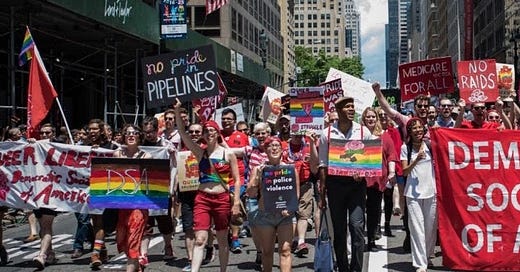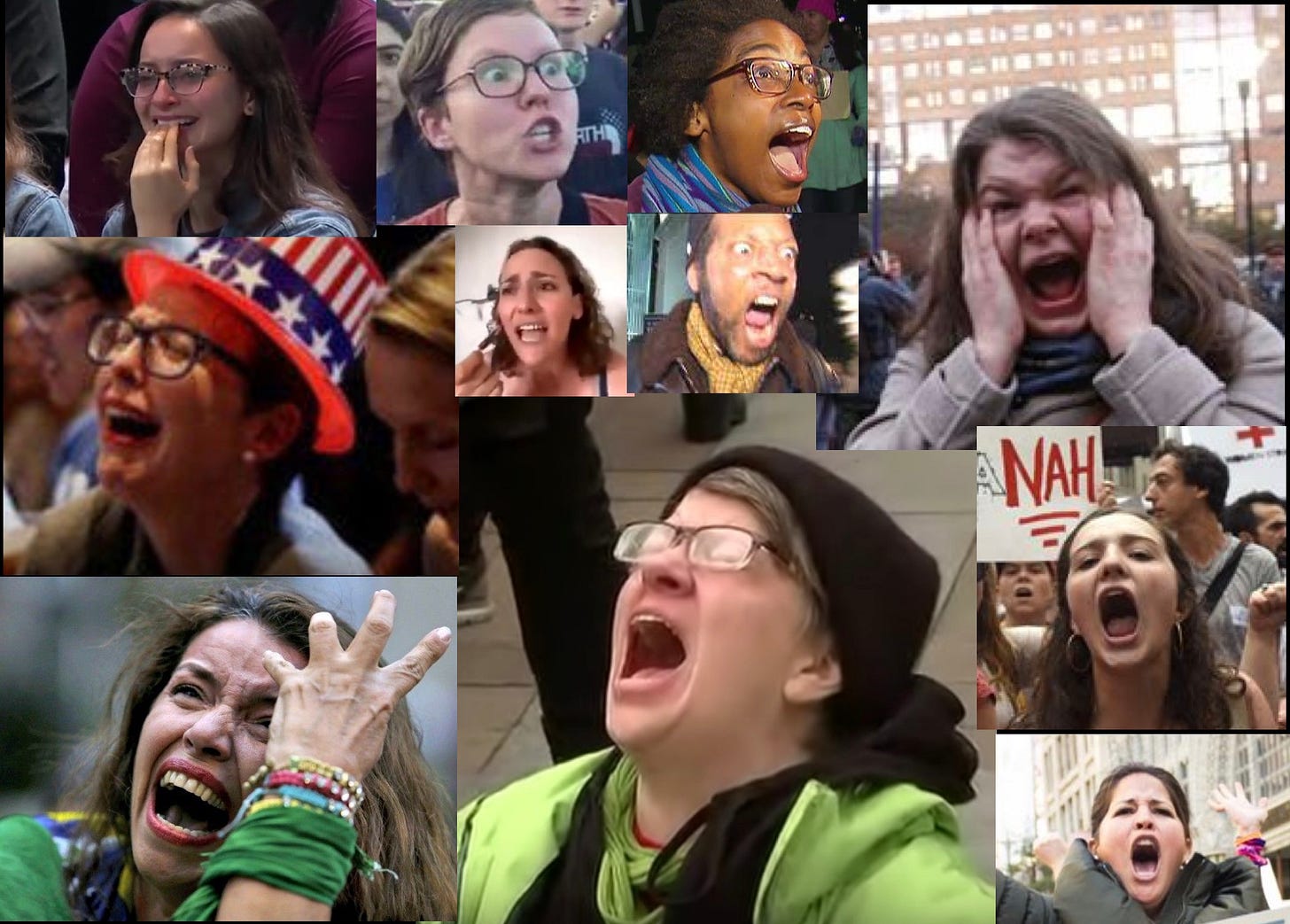An Internet friend and fellow blogger (check out his Substack here), recently made the point that poverty is no longer a significant element in identifying the oppressed. Therein lies the failure of Marxism 1.0, which sought to sow unrest by dividing society along economic lines.
Marxism 2.0 opted to shift the wedge from matters economic to matters demographic, to divide by identity markers such as skin color, gender, and sexual orientation. Since people can't (or can they?) change those the way they can lift themselves out of poverty, such divisions are more enduring, and more personal. I've shared this enlightening essay on the history of Critical Theory several times - if you haven't read it, please carve out some time, and you'll see why I rescued it from the Internet's abyss.
Way back in 1979, someone named G. K. Payne coined the phrase "first world problems," referring to trivial inconveniences some might encounter in a society with far more wealth, ease, and plenty than most of the world has. As in "slow internet" or a bad hair day. It was meant as irony, mockery, and a call out of narcissism, and it was apt and pithy.
Irony is a quaint notion nowadays, unfortunately.
In its stead, we have overblown, almost solipsistic self-importance, where everyone insists that he or she or zhe belongs at the top of the grievance hierarchy.
First word problems, indeed.
Look at the ranks of those screaming about oppression, and you'll find them populated with well-to-do, highly-educated high-earners. The "progressive activist" segment of society totals about eight percent of the US population, and that segment is chock-full of white, college educated six-figure people.
It's hard to sky-scream "Oppression!" as a personal matter when you're in the top decile of earners in the country. But, sky-scream they must, so they trot out the non-economic discriminators to justify it.
Moreover, since they remain in that top decile even as they point out their membership in 'traditionally marginalized groups,' they are less apt to be believed when they claim personal oppression.
Behold the collectivization of oppression via the "systemic" descriptor. You or I could treat such an individual as an absolute equal, with no judgment or bigotry whatsoever, and with the default level of respect we grant anyone, and thus be immune to accusations of oppressive behavior. Or at least we could in the past. Now, the entirety of society is stacked against them, in its bones and eternally, so you and I are obligated to grant them preferential rather than equal treatment and consideration.
This allows tenured Harvard professors, assorted millionaires, and their ilk to claim oppressed status, despite the fact that their lives are orders of magnitude easier and more secure than a white guy working a wage job and living paycheck-to-paycheck in a trailer somewhere in flyover country.
"To what end?" you might ask.
The answer is predicated on a premise antithetical to everything you and I believe (or should believe) about how things should be.
The clue to that premise is the substitution of "equity" for "equality." For it is beyond doubt that all this is about inequality as an end goal. The 'oppressed' in this equation desire to have higher status (and power) than their fellow members of that society. They don't want a free and equal society or culture or nation. They want supremacy. They want to control how others live, dictate what others think, and take for themselves what others have. Theirs is a zero-sum (mis)understanding of how the world works, and they make excuses about being oppressed so that they can legitimize their seizing of a larger piece of that pie.
All this noble, highfalutin erudition about oppression, systemic this and that, and the balance of the woke lexicon is a ‘pay no attention to the man behind the curtain’ veneer of care for the oppressed masking a core desire to dominate. They are the true oppressors, the real enemies of freedom and liberty and self-determination, and the chief obstacle to the betterment of society and the lives of its members.
Pay attention to the next person you see play the victim card. Odds are good that person is already in a more secure, more coddled, and more exalted societal position than you are, and is freer to voice his or her or zhits opinions and belief than you.
Thank you for reading! If you enjoy The Roots of Liberty, please subscribe (if you have already, thank you!), and please recommend the blog to your friends. Social media has proven wholly unreliable in sharing my posts, subscribing is mightier than the shadow-banners, and subscriptions motivate my productivity.
If you really like The Roots of Liberty and want to help keep it rolling, please consider becoming a paying subscriber here at Substack, or at a lighter level as contributor to the blog via Patreon. I’ve started offering an expanded serialization of my short book, “End the War On Drugs,” every Sunday, for my paid subscribers.
Chapter 1 - A Catastrophic Failure
Chapter 2 - A Brief History
Chapter 3 - A Society Rooted in Individual Liberty
Thank you, again, for your support!
Peter.








You hit that one out of the park!
"First word problems, indeed." Had to read that several times wondering if word/world was intended. He, she, zhe. First word problems, indeed.